[AD – PR invite*]
★★★½
The historic location of Speakers’ Corner in Hyde Park, London continues to be a home to eccentric characters and revolutionaries, many years after it was a place for public executions. This location in central London’s largest park is the theme for actor and playwright Rufus Love’s new solo show ‘Speakers’ Corner: The Public Shaming of Rufus Love’. It is currently playing at The Hope Theatre in Islington and when I received the invitation to review the production, I was most intrigued by the write-up. Firstly, I had no idea what Speakers’ Corner was and this led to me getting lost online for a little while, learning about the meaning of the meeting place. When I arrived at the venue in time to review the show, this intrigue was taken to a whole new level at the sight of a hangman’s stand with a judge and bishop’s costume. What were the audience going to be in for? The initial set certainly sparked imagination before the play began.
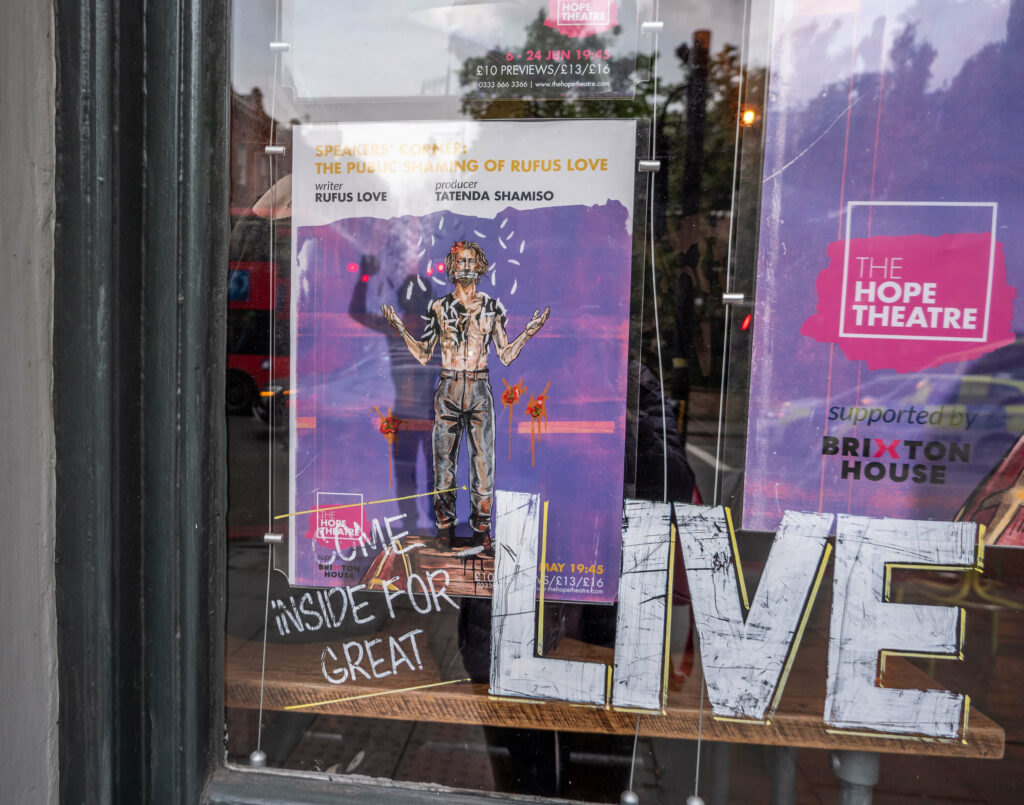
About the play
Part comedy and part drama, Love’s work likens Speakers’ Corner to a real-life version of Twitter, where everybody is free to communicate as they wish. Similarly to the internet, spoken words can’t occur without repercussions and if spectators don’t agree with you, you face a real-life mob. The material alternates between being humorous and chilling, with the audience laughing one minute and then being in deep thought the next. There is no filter to the script, with Rufus using colloquial language and lots of swearing to paint a picture of the characters you come across at Speakers’ Corner. It is a bit much in places, particularly as lots of the people that are recreated seem to take on a similar tone of voice and dialect. Although, in this instance the words have been used to generate humour and help the audience reflect on the absurdity of it all.
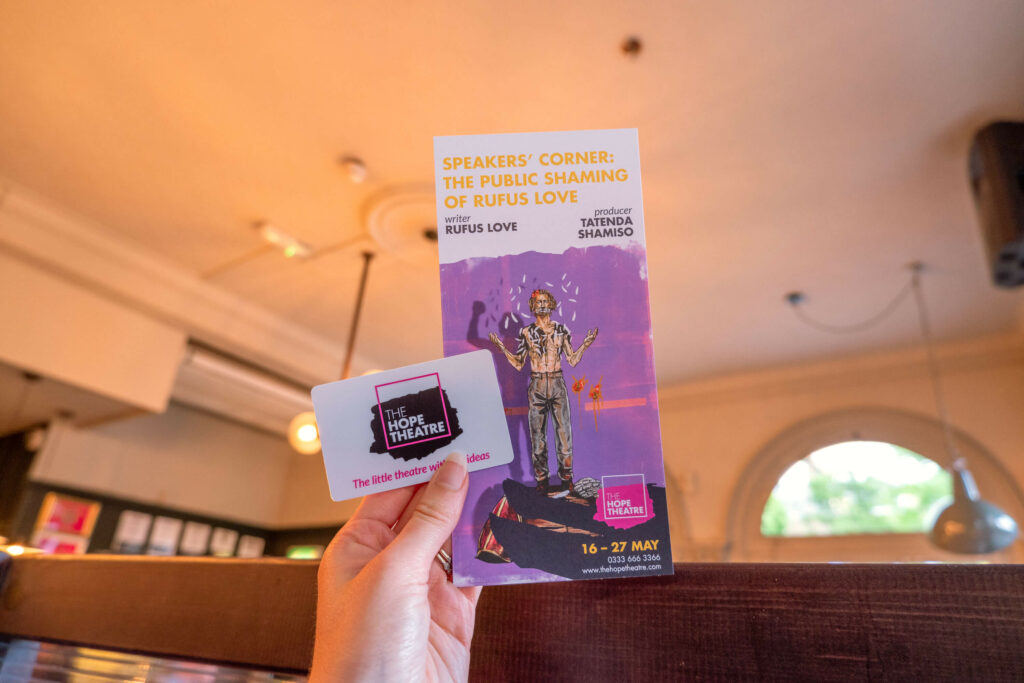
Reflection on the writing
In general I think the play is very clever, particularly when comparisons are made between the historical significance of Speakers’ Corner and the debate hub it is today. There are similarities between the crowds of a past life and the present day mobs, each taking enjoyment at the misfortune of others. It also takes on some challenging topics, particularly around the ideas of morals and the sacrifices involved in being on the ‘right’ side of an argument.
However, the dialogue moves at a very fast pace and Rufus takes on many roles, which I struggled to keep up with. There is some really important messaging towards the end of the show which I almost missed and consequently found myself playing catch up. It is so easy to get caught up in the comedic elements of the work with Rufus being a brilliant impersonator, that you can lose sight of the intricacies within the script and the play’s bigger picture. The show covers a lot within its running time and in a way, I think it could have benefitted from being slightly longer. It would provide more time for explanation surrounding the wider significance of the work.
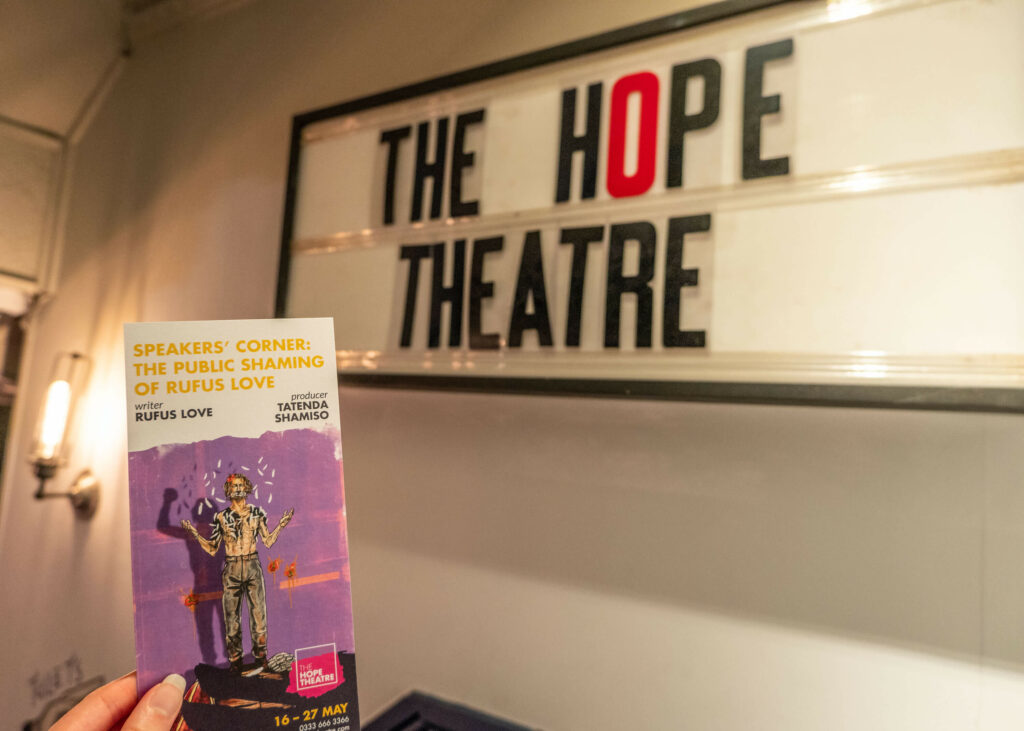
The strengths
The high points are definitely the humorous elements. Love is a master storyteller and when in character as reflective Rufus, the audience is transported to Speakers’ Corner through the vivid and intriguing descriptions of the different groups of people in attendance. Without giving too much away, there is a sequence where the actor becomes a ‘judge’ and Love is completely enthralling in this role.
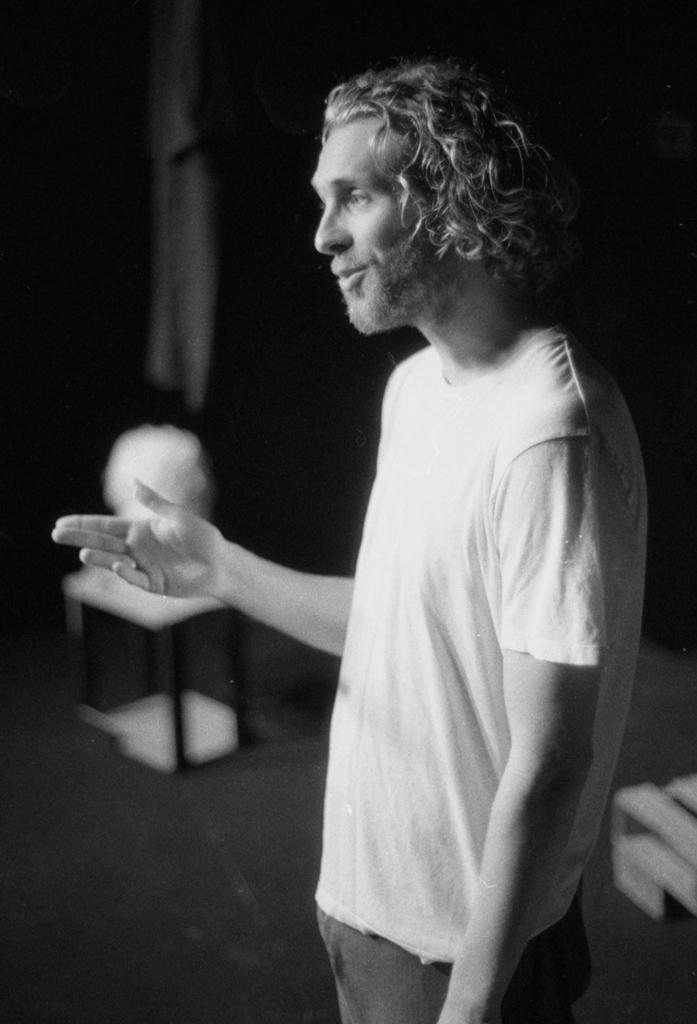
Even though they are limited, the props and costumes are used exceptionally well. The unavoidable presence of a hangman’s knot always brings the audience back to the theme of sharing your last words and the rowdy crowds that used to be in attendance at public executions. The costumes also help highlight the figures that have the greatest impact on the main character, which is a helpful addition considering the number of people portrayed.
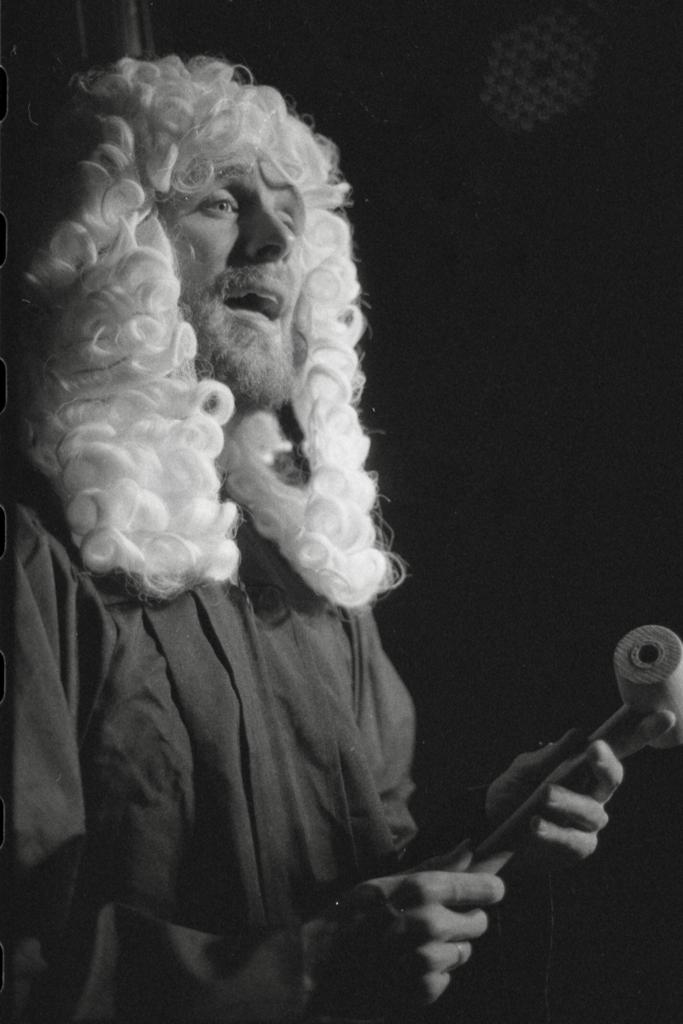
Do the comedy and drama themes work in tandem?
At times the content feels disjointed, largely down to the transitions between moments of comedy and drama. These abrupt tonal changes make the play feel as if it is a rollercoaster ride through a Sunday afternoon in Hyde Park, both in terms of speed and events. Whilst I am sure a session at Speakers’ Corner can definitely be likened to this, it is quite jarring at present. Reviewing the movements from comedy to drama again and making them a little smoother would help make the show a little easier to watch. Although, I certainly left the theatre feeling like I needed to think more about the Twittersphere and the impact debate can have, which illustrates the influence of the writing.
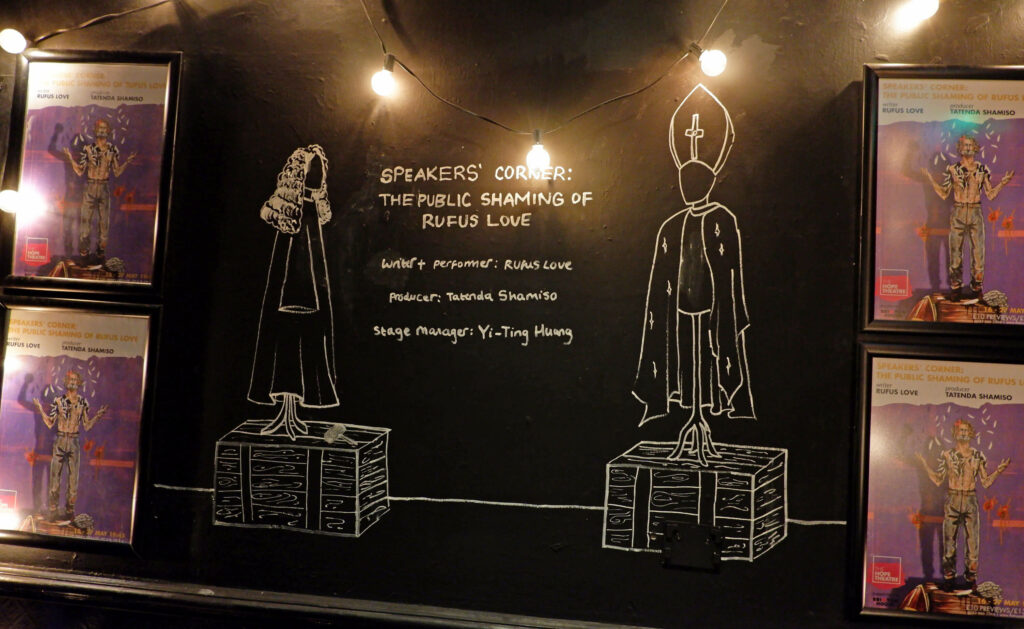
Overall thoughts
Despite my thoughts on the fast pace and the stark switching from comedy to drama, I did really enjoy the show. Rufus Love is an incredibly captivating performer, constantly engaging the audience throughout the play. With performances running until 27th May, tickets for Speakers’ Corner: The Public Shaming of Rufus Love can be purchased from The Hope Theatre’s website. In the future it would be great to see a slightly longer version of the work, as by the end I felt Love still had a lot to say on the Hyde Park experience.
Thanks for reading my blog today.
Love Kat xxxx
*My ticket for Speakers’ Corner: The Public Shaming Of Rufus Love was gifted in exchange for a review.

Comments